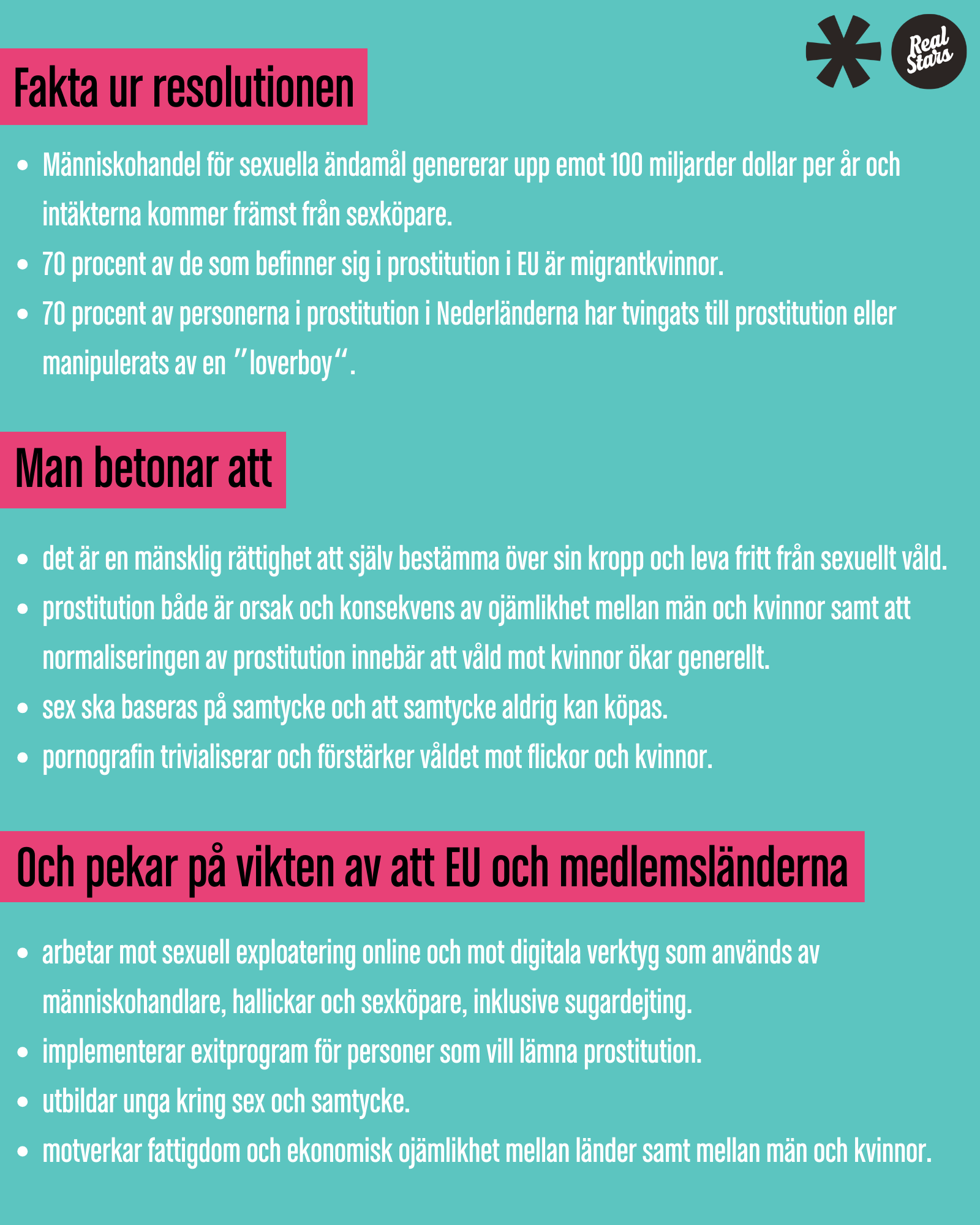In September, the European Parliament adopted a resolution recognizing prostitution as a form of violence against women and other vulnerable groups—a form of violence that cannot be effectively addressed as long as procuring and buying sex remain legal. The resolution encourages member states to follow the example of countries like Sweden and France by criminalizing the purchase of sex and procuring. This is a significant step forward and very welcome news!
A Step in the Right Direction
On September 14th this year, the European Parliament voted in favor of a resolution that, while not legally binding, establishes a common EU perspective on prostitution—as a patriarchal and violent system fundamentally incompatible with women’s human rights. The European Parliament recommends that member states adopt the Nordic Model and ensure support and protection for victims. This marks a historic success and a significant step towards a Europe free from prostitution and trafficking!
Varying Prostitution Laws Benefit Human Traffickers
The current differences in prostitution legislation among EU member states create a favorable climate for human traffickers. Traffickers are highly adaptable, shifting their criminal activities to countries where the risks are low and profits are high. Countries where buying sex and procuring are legal, and where prostitution is normalized, are particularly attractive to traffickers. High demand in such places, coupled with the ability for traffickers to pose as legitimate business operators behind legal facades, allows them to evade authorities. The resolution highlights that adopting common legislation against procuring and buying sex across the EU would make it significantly harder for human traffickers to operate.
An Important Stance Against the Sex Industry
The decision marks a significant stance against the sex industry and the pro-prostitution lobby, which perpetuates the myth that prostitution is a free choice and a profession like any other. Advocates of legalization argue that it improves conditions for those in prostitution, but the resolution dismantles these claims. It highlights the harsh reality that women in prostitution face—everyday violence, coercion, and exploitation—and emphasizes that while most want to leave, few have the means to do so. Furthermore, the resolution points out that legalization in countries like Germany has not improved conditions for those in prostitution. Instead, it has deepened their vulnerability and worsened exploitation.
The Winds of Change Are Blowing in Germany
In a promising development, Germany’s Christian Democratic parties, CDU and CSU, announced in early November 2023 their intention to introduce the Nordic Model in Germany. Aligning with the European Parliament’s stance, they argue that the legalization of prostitution has led to an uncontrollable surge in human trafficking, and measures aimed at protecting those in prostitution have proven ineffective. One striking example is the option for individuals in prostitution to register for benefits such as pensions. Out of an estimated 400,000 people in prostitution, only 23,000 have registered. The sex industry remains dominated by crime and anonymity, with most individuals either unable or unwilling to disclose their involvement in prostitution. The CDU highlights that treating prostitution as a profession simply does not work. They emphasize that very few people truly choose prostitution, and the system is inherently inhumane and deeply misogynistic.
RealStars is pleased that the CDU and CSU have reached this understanding and will continue to advocate for the adoption of sex purchase laws in more countries, including Germany, where further efforts are essential to protect vulnerable individuals and hold perpetrators accountable.
Wouldn’t it be incredible if all EU member states and citizens embraced the principle that sex must always be based on consent, respect, and reciprocity—and that consent can never be bought?




